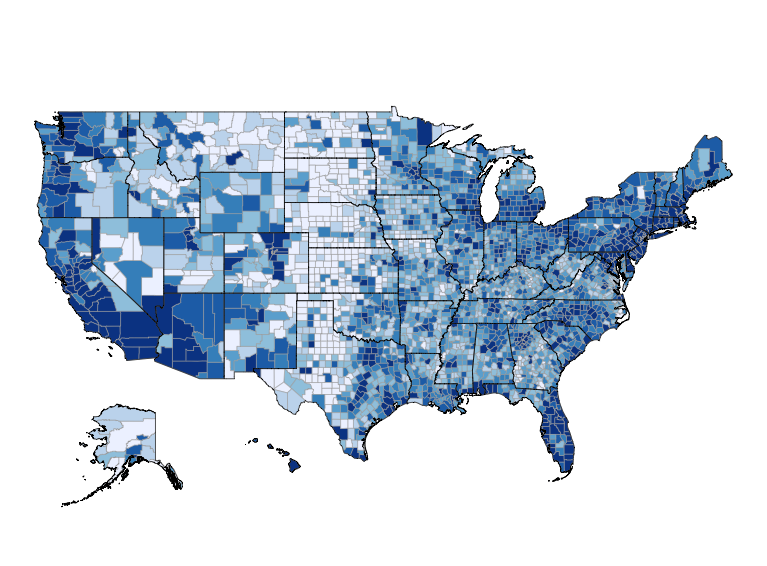8 comments
And I might add,
that your first online class offering was ridiculously cheap given (a) the quality of the instruction, (b) the depth of expertise and (c) the knowledge gained. A “fair” price could have been 5-10x the cost you initially offered your choroplethr course for. The offering was so inexpensive it was easy to take a flier on and pay out of my own pocket, as I imagine many did. This allowed you to build a good size following, leverage your innate talent in teaching and explanation, and build from there.
I think another important point relates to the niche you filled, and how you filled it. Many of us, and many of the people around us, find geospatial analysis “sexy” but not readily accessible to anyone but the most technically sophisticated. You developed an R package and education series that allowed relative amateurs to more than dip their toes in the water, but dive right in. The examples and materials you provided were ridiculously easy to replicate and extend to our own fields of study. The contests you ran, the community you’re building around the package, etc… all seem to have played a role.
Of course the ROI really started when you developed a for-profit business model and began to see a return, but the investment I’m sure was not insignificant. Maybe from your pov it has just evolved over time, but I certainly appreciate all the work that likely went in to get there. Don’t sell your self short. Just keep the cheap offerings coming ;-).
Thank you for the kind words Jeff!
So you actually read, and used AUTHORITY, and JUST SHIP? Or are they just “friends in commerce?”
Absolutely.
I would not call Nathan or Amy my friend. I emailed both of them as I was reading their books and applying what they taught. But I doubt that either of them remember me at all, and I’ve never met them in person. We have no financial relationship and the links above are not affiliate links.
Here’s why I recommend “Authority”. I think that many people start an R blog because they genuinely love doing data analysis projects. But they don’t see a “next step” beyond writing blog posts. It’s either “write blog posts” (free) or “get a full time job”. I think that the lessons in Authority helped me see a third path. You can read what is essentially an excerpt from Authority for free here: http://blog.gumroad.com/post/73421524134/nathan-barrys-lessons-learned-selling-355759-on.
Here’s why I recommend “Just Ship”. Shipping your first project is hard. Full stop. It is very easy to find a reason or excuse to put it off and never get it done. But as I mentioned in this post, the impact of shipping was profound for me. Amy fully understands all the reasons (excuses?) people give for not shipping their first project, and gives lots of reasons and motivation to pull the trigger.
If you want to take the next step with your data analysis projects, I highly recommend both books.
Sounds good. Thanks for the reply.
Great you shared your experience publicly with novice like me.
I most add that I use the average of start dates and concluded that it took you 1year 5months.
Huh. I never really thought of R packages or an R portfolio as money makers (outside of the “this gets me a job” sense), since they are free and open source. I’ve been writing a data analysis blog and got some good traffic part time and have not seen it as a money maker. Maybe at some point that will change. Interesting read.
I think that I always knew that there was a demand for full-time data analysts.
What I didn’t realize what there is just as much demand for training and consulting in the field.
And I certainly didn’t realize that my blog was already doing a lot of the marketing for me in that niche.
I hope that more bloggers come to realize that. Because if your own R&D can support you, then you can spend more time doing R&D. I think for many people with a data analysis blog, that’s really the dream.
